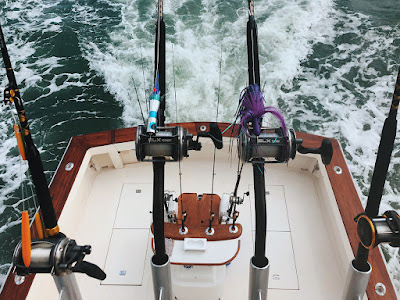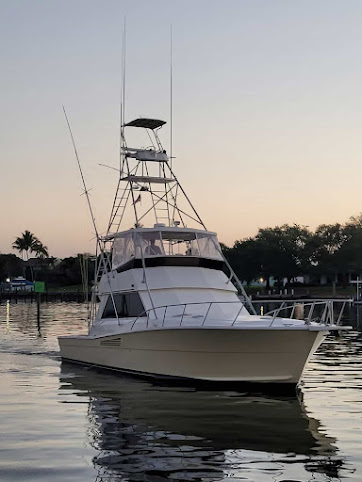Tackling Tuna: Essential Considerations for Your Fishing Adventure
For avid anglers and fishing enthusiasts, a tuna fishing trip is a thrilling and challenging experience. The adrenaline rush of battling a powerful tuna, combined with the picturesque backdrop of the open sea, makes it an unforgettable adventure. However, successful tuna fishing trips in St. Stuart require careful planning and preparation. In this blog post, we will discuss essential considerations to remember when embarking on a tuna fishing trip, ensuring a rewarding and enjoyable experience.
Season and Location
Tuna fishing is highly dependent on the season and the location you choose. Different species of tuna migrate at specific times of the year and favor different regions. Research and understand the migration patterns and peak seasons for the species you intend to target. This knowledge will help you select the right time and location for your trip, increasing your chances of encountering active feeding grounds and abundant tuna populations.
Fishing Gear and Equipment
Tuna are renowned for their strength and speed, so having the appropriate fishing gear and equipment is crucial. Invest in high-quality rods, reels, and lines capable of handling the immense power of tuna. Look for heavy-duty reels with sufficient line capacity and a strong drag system. Don't forget to pack a variety of hooks, lures, and live bait options suitable for tuna fishing.
Safety Measures
Safety should be a top priority during any fishing trip. Tuna fishing often occurs in open waters, where weather conditions can be unpredictable. Before looking up tuna fishing charters in St. Stuart, check the weather forecasts and sea conditions before heading out, and ensure that you have proper safety equipment on board, including life jackets, first aid kits, and communication devices.
Local Regulations and Fishing Ethics
Familiarize yourself with local fishing regulations and guidelines in the area you plan to fish. Different regions may have specific rules regarding bag limits, catch-and-release practices, and fishing methods. Ensure you have the necessary fishing permits and licenses, and respect conservation efforts to preserve tuna populations for future generations.
Knowledge of Tuna Behavior and Techniques:
Understanding tuna's behavior and feeding patterns is essential for a successful fishing trip. Learn about their preferred habitats, feeding habits, and the best techniques for each species. Tuna is known to be highly migratory, often following baitfish schools or congregating around underwater structures.
Experienced Charter or Guide
Consider hiring an experienced tuna fishing charter or guide, especially if you're new to this type of fishing. A knowledgeable guide can provide valuable insights into local conditions, hotspots, and the most effective fishing techniques. They often have access to specialized equipment, and their expertise can significantly increase your chances of a successful catch.
Final Thoughts
Embarking on tuna fishing trips in St. Stuart require careful planning, the right equipment, and a good understanding of the species' behavior. By considering the season, location, safety measures, local regulations, and fishing techniques, you can enhance your chances of a memorable and successful fishing adventure.



Comments
Post a Comment